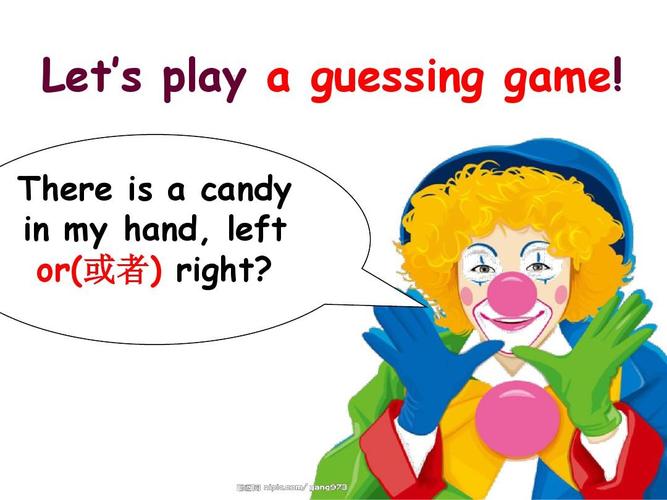您所在的位置:首页 - 科普 - 正文科普
英文早教启蒙
![]() 双辉
2024-05-08
【科普】
161人已围观
双辉
2024-05-08
【科普】
161人已围观
摘要###Title:TheImportanceofEnglishEarlyChildhoodEducation:GiggleYourWaytoSuccessEnglishearlychildhooded
Title: The Importance of English Early Childhood Education: Giggle Your Way to Success
English early childhood education, often referred to as "giggle" education, plays a crucial role in shaping a child's linguistic development and overall cognitive abilities. Let's delve into why giggle education is essential and how it can benefit young learners.
Understanding Giggle Education:
"Giggle" education refers to the approach of introducing English language learning to children in a playful and interactive manner. It's not just about teaching vocabulary and grammar but fostering a positive association with the language through laughter, games, songs, and storytelling.
Importance of Giggle Education:
1.
Language Acquisition
: Young children have a remarkable ability to absorb languages naturally. Giggle education capitalizes on this by immersing them in English from an early age, making language acquisition feel like a fun adventure rather than a daunting task.2.
Cognitive Development
: Engaging in playful activities like singing, dancing, and roleplaying stimulates various cognitive functions such as memory, attention, and problemsolving skills. These activities lay a strong foundation for future learning and academic success.3.
Confidence Building
: When children feel comfortable and enjoy learning, they're more likely to build confidence in their language skills. Giggle education creates a supportive environment where children feel free to experiment with English without fear of making mistakes.4.
Cultural Awareness
: Exposure to English at a young age also introduces children to different cultures and perspectives, fostering cultural diversity and empathy from an early stage.Tips for Effective Giggle Education:
1.
Interactive Activities
: Incorporate games, puppets, songs, and rhymes into lessons to keep children engaged and motivated.2.
Storytelling
: Narrating simple stories in English helps children develop listening comprehension skills and encourages their imagination.3.
Use of Visual Aids
: Visual aids such as flashcards, pictures, and videos enhance understanding and retention of vocabulary and concepts.4.
Encourage Participation
: Create a supportive atmosphere where children feel encouraged to participate actively in class activities and express themselves in English.5.
Repetition with Variation
: Repeat key vocabulary and phrases while introducing new elements to keep lessons fresh and challenging.
6.
Outdoor Activities
: Take advantage of outdoor settings for language learning activities such as nature walks, scavenger hunts, and playground games.Conclusion:
English giggle education offers a playful and effective approach to early childhood language learning. By incorporating fun and interactive activities into lessons, educators can nurture children's linguistic abilities, cognitive skills, and confidence in English. Remember, with giggle education, every laugh is a step closer to language proficiency and lifelong learning success.
This response provides an overview of the importance of English early childhood education, focusing on the "giggle" approach, and offers practical tips for educators. Let me know if you need further details on any aspect!
Tags: gina英文怎么读 英文早教动画 英文早教儿歌视频 英语gives怎么读
版权声明: 感谢您对【华丽科普网】网站平台的认可,无特别说明,本站所有文章均归【华丽科普网】平台所有,转载请说明文章出处“来源【华丽科普网】”。 https://jxhualida.com/post/16650.html
上一篇: 红黄蓝早教班收费一年多少
下一篇: 秋天的儿歌早教活动反思
最近发表
- 湖南卫视连发20条迪丽热巴,背后的故事与深度解读
- 警惕海盗袭击,渔船安全刻不容缓,寻找失踪人员的希望之光
- 广东茂名发生地震,如何应对地震灾害?
- 板凳妈妈,一位温暖人心的离去,享年六十九岁
- 民营企业如何向新而行—探索创新发展的路径与实践
- 四位退休老人因追求额外收入,不慎陷入刑拘困境
- 国家发改委不点名批评背后的深意,汽车产业需自我革新与高质量发展
- 香港歌手李国祥离世,一个时代的落幕与回忆
- 冷空气终于要走了,春天的脚步近了
- 郑州无声餐厅,独特的魅力,引领潮流新风尚
- 李乃文,一支笔的魔法之旅,变出与和伟的无限可能
- 演员喻恩泰凭借眼技惊艳全场,引发广泛热议!
- 婚礼上的小插曲,拉链与闭链的温馨故事
- 缅甸地震,深入解析与理解
- 戚薇二胎产子,温馨画面下的喜悦与成长
- 警惕儿童疾病,一个十岁女孩因高烧去世的背后故事
- 成品油需求变天,市场趋势下的新机遇与挑战
- 用户吐槽小米试驾服务,雷军秒道歉—看小米如何迅速应对客户反馈
- 国资委重磅宣布,对整车央企实施战略性重组
- 罗生门下的悲剧,失踪的清华毕业生已身亡
- 车主遭遇红灯与后车催促,一次日常驾驶中的微妙体验
- 王宝强,真实与演技的交融
- 海南航空对空姐遭乘客偷拍事件的回应,维护安全、尊重隐私与正义的航程
- 提振消费,新举措助力消费复苏
- 文物走红网络时代,年轻人的创意与传承新风尚
- 探索涂料世界的奥秘—走进上海涂料研究所
- 地球脉动的新时代,专家解读我们是否进入了地质活跃期
- 岩石力学与工程学报,探索地壳深处的秘密
- 震中华人店主亲历记,房屋倒塌的瞬间与重建的希望
- 证监会对浙商证券采取责令改正措施,深化理解其背后意义与影响
- 揭秘医药养生保健报,守护您的健康生活
- 揭秘多哈世乒赛器材背后的故事,一场科技与竞技的完美结合
- 大学生思想政治教育,塑造未来社会栋梁的关键一步
- 备孕路上的特殊挑战,一位90后小伙的生蚝大挑战
- 超临界流体萃取技术,让大自然的精华乖乖听话
- 清明五一档,多部影片竞相绽放,谁将成为票房黑马?
- 黎巴嫩首都贝鲁特惊天爆炸,探究背后的真相
- 玩转电脑游戏,攻略在手,轻松通关!
- 深交所修订发布发行承销业务细则详解
- 国际原子能机构,守护全球核安全与和平发展的关键力量
- 林高远练琴之路,勤奋与坚持的力量
- 别无选择2012,生活中的十字路口与我们的决定权
- 王者荣耀遭遇短暂服务中断,游戏回应崩了的背后故事
- 如何撰写优秀的经济管理毕业论文?从选题到完成的全方位指南
- 中方未续牛肉进口合同,美国牛肉厂商遭遇重击的背后故事
- 揭秘苏宁易购的强劲增长,2024年全年盈利同比增长达114.93%
- 出版发行研究,让好书找到对的读者
- 商业健康保险药品咨询与探讨,行业内的声音与未来展望
- 工商管理毕业论文,如何撰写出高质量的研究成果?
- 董宇辉报平安—科技时代的安全守护者


